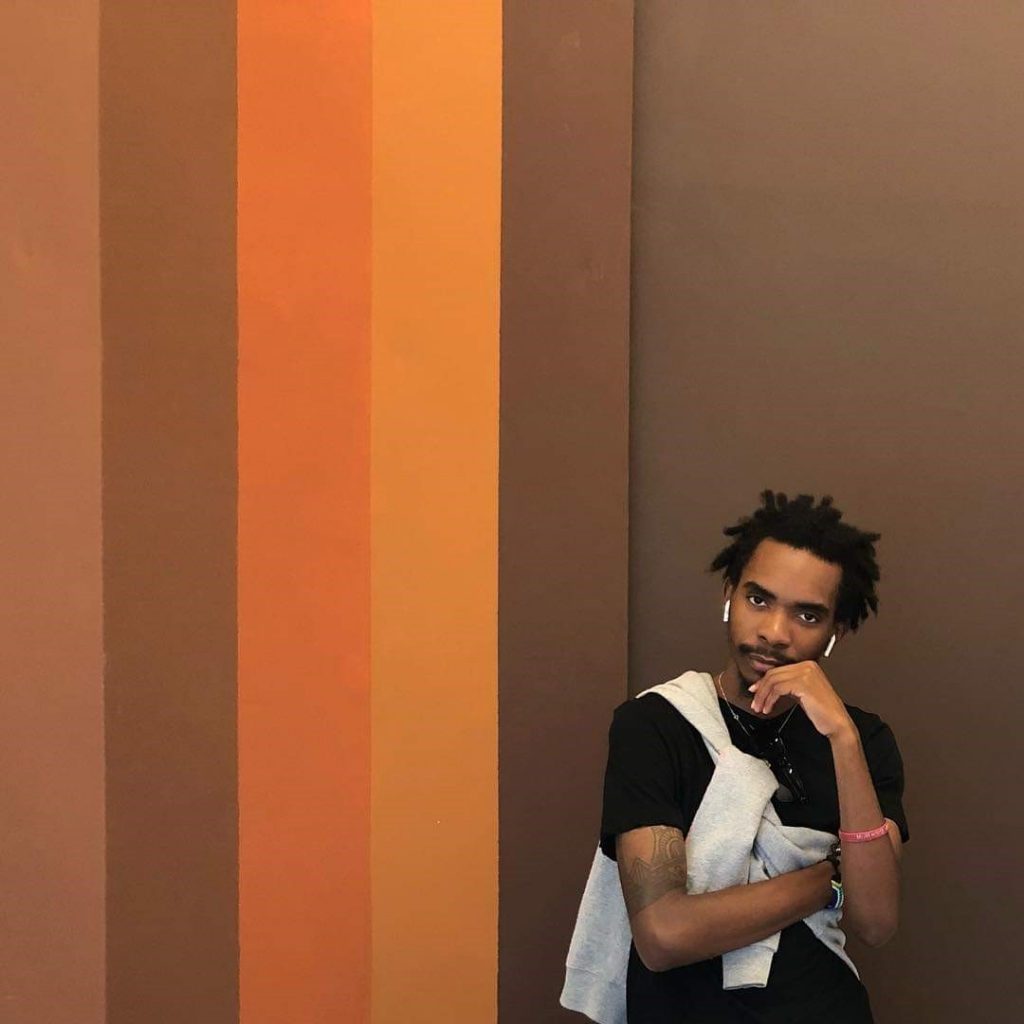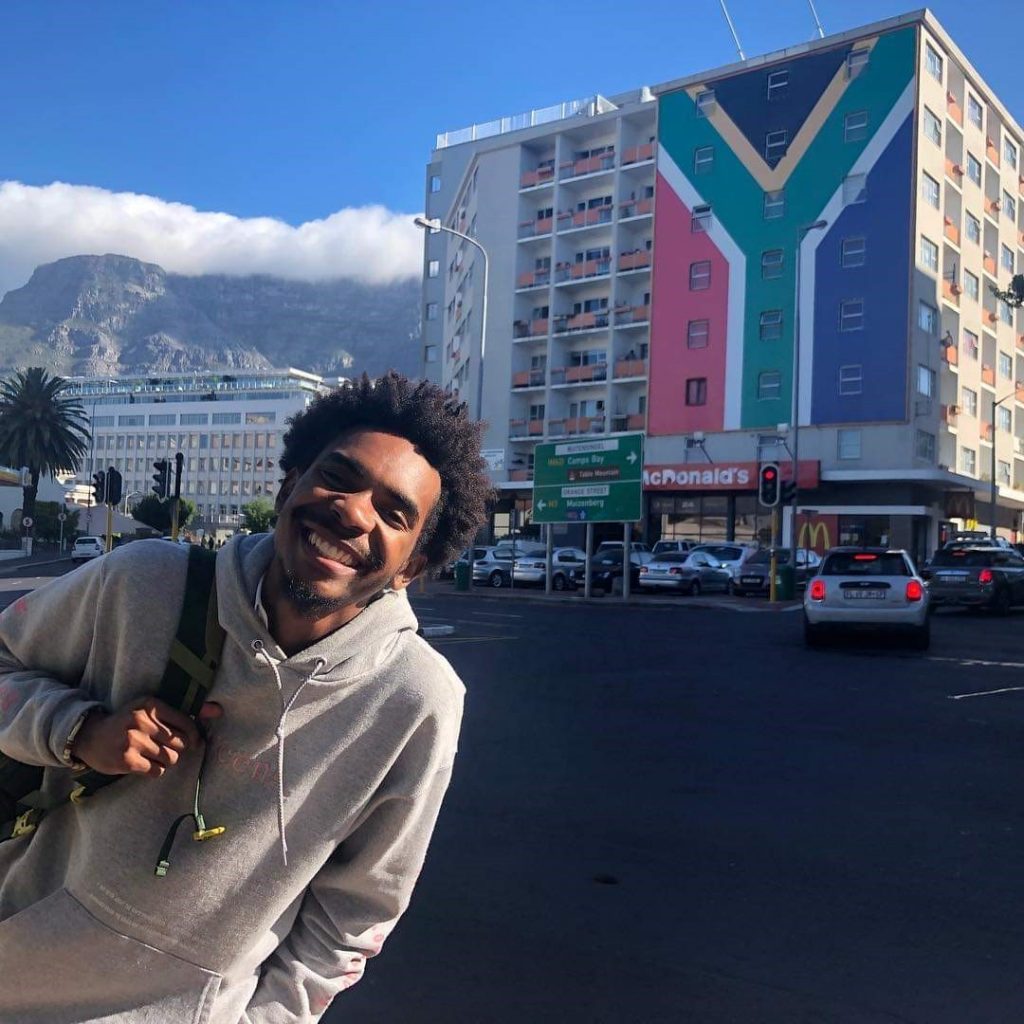Paying it forward: Morehouse grad Corey Smith
June 4th, 2019 | Africa, SIT Study Abroad

When Robert F. Smith, the billionaire CEO of Vista Equity Partners, announced that he would personally cover the student loans of every 2019 Morehouse College graduate, the assembled students, families, and alumni responded with a shocked intake of breath — and then with cheers.
SIT Study Abroad alum Corey Smith was one of those graduates. He said it felt like a dream.
Smith announced his nearly $40 million gift during a May 19 commencement address, telling graduates, “We’re gonna put a little fuel in your bus,” and challenging Morehouse alumni to follow his example by supporting future classes.
“It’s still a surreal moment, even now,” Corey said. “It's something that I couldn't have fathomed for myself. I'm absolutely honored.”
Corey, a Kansas City, Missouri native, leaves Morehouse with a degree in sociology and journalism and, come fall, a two-year operations gig at Uncommon Leadership Charter High School in Brooklyn, N.Y. During the summer months until then, he will assist sociologist Lane Kenworthy with research at the University of California San Diego. Long term, Corey is considering a career in public relations.

“I want to open up my own PR marketing-consulting firm,” he said. “We can also touch on education policy and touch on entertainment and do a plethora of things. Sociology, I felt, gave me the most robust opportunity to be able to engage in more than one thing.”
Corey channels his wide-ranging interests — education, storytelling, activism, racial justice — into writing. At Morehouse, he took to opinion writing as a way of “shifting narratives,” publishing pieces on how educational disparities in urban black communities affect students’ social and emotional development, as well as how Morehouse undergrads and alumni could better contribute to their college. Last fall, during the semester he spent in South Africa with SIT Study Abroad, Corey expanded into international coverage by working as a cub reporter for the Sunday Times in Cape Town.
“There were protests every day that we could cover,” Corey said. “We got to really engage with the community — got to really see what it felt like working in a newsroom, having to pitch, having to submit articles in a timely fashion.”
“It was a whirlwind, but I enjoyed every second of it,” he said. Plus, at the age of 22, he can already claim several international bylines.
Corey had never traveled overseas before. Nor had any of his siblings. Yet in some ways, South Africa felt like coming home, and Corey found that he fit into the country almost seamlessly. If he was alone, most South Africans would address him in their own language and then express shock that he came from the United States. They would say, “Surely, you have some family ties?”
“To get there and to see so many beautiful black faces, many of them that looked like my own, that looked like cousins of mine or aunts and uncles, or even faces that resembled my mom's — I just felt like I was right at home,” Corey said.
During his homestay in Durban, word of who he was spread within the host family network and beyond. As Corey strolled through his neighborhood, people would call out to him, inviting him to dinner or simply to stop and chat.
Corey was the only black student within his group, which sometimes placed him in unique situations. He recalls watching a long debate between several white students on his program and a white South African about whether the latter benefited from white privilege. The SIT students argued that he did; he demurred. Corey remembers thinking that this is surely not the kind of conversation many white Americans are having with one another back Stateside. He came away from the encounter wary of mapping US narratives onto other countries.
“We aren't from here, and we don't live here, and we can't
assume that everything that's happening in America is also happening in other
places,” Corey said. “After that interaction, I had a chance to sit down and
talk with him, and it just pushed me to really see humanity in everyone and to
allow people to share their narrative themselves.”
South Africa also recharged Corey’s activist spirit. Within the first few days in Johannesburg, the group visited the Hector Pieterson Museum, dedicated to the 12-year-old schoolboy shot and killed by police during the 1976 Soweto uprising. A photo of Hector’s body being carried by another boy became an iconic testament to the horrors of the apartheid regime. As he toured the museum, Corey felt a familiar heaviness fall over him, one he had felt before upon hearing of the deaths of Trayvon Martin, Mike Brown, and so many others. No place existed, it seemed, where black bodies were safe.
“I just stared out the window and was just having a moment of silence,” Corey said. “Like, wow, where can we go where we are not assumed to be dangerous?”
At that point, he knew that “the rest of this trip is going to continue to break me down only to build me back up,” he said.
Returning home, Corey felt a renewed sense of purpose. He dove into his final semester with relish. He resolved to become someone who would not allow the world’s rampant negativity and occasional danger to strip “the joy and the life and the love” from him. And he determined to spread that ethos to others.
In the days since Robert F. Smith made his announcement, some critics have argued that, if anything, his $40 million gift reveals how inaccessible higher education is for many Americans, as well as how unequally wealth is distributed in this country — something to correct, not celebrate. Corey sees it differently.
“I would just urge people to look beyond it being a billionaire paying student loan debt,” he said. “We have to really racialize it and make sure that we are emphasizing the fact that this is a black man paying back black men's debt and giving us the opportunity to progress in a way that uplifts our communities.”
“I can't wait to pay it forward,” Corey said.
